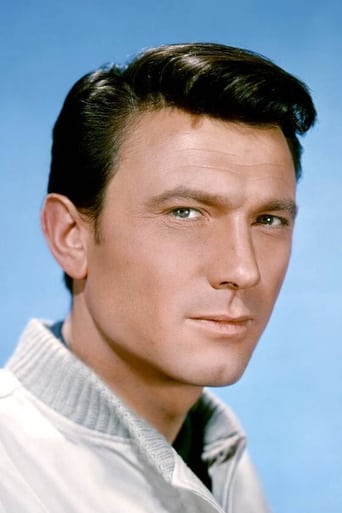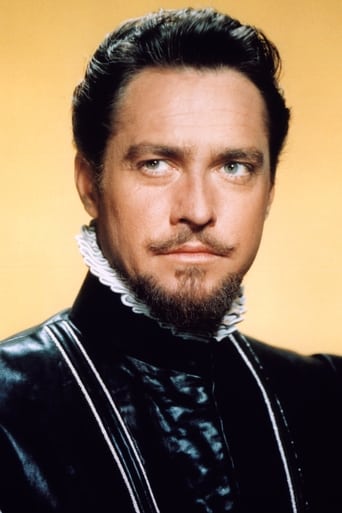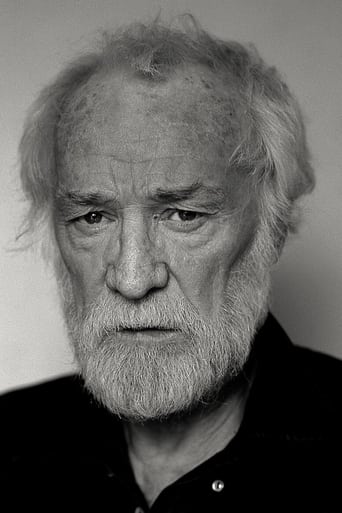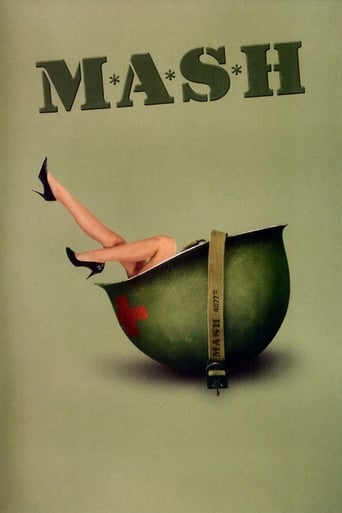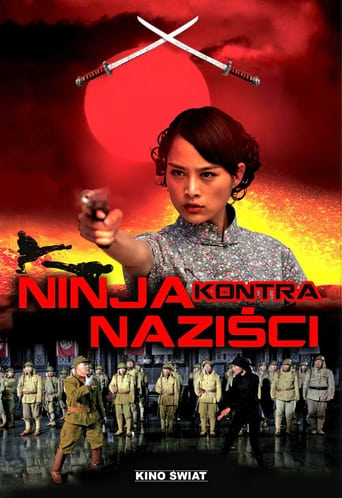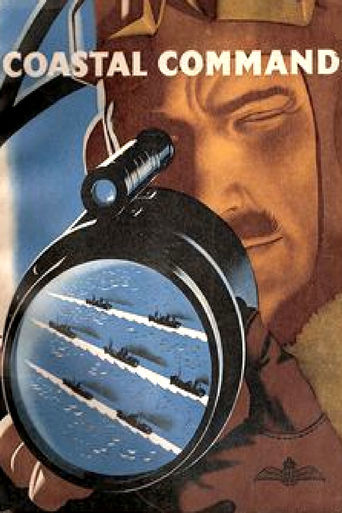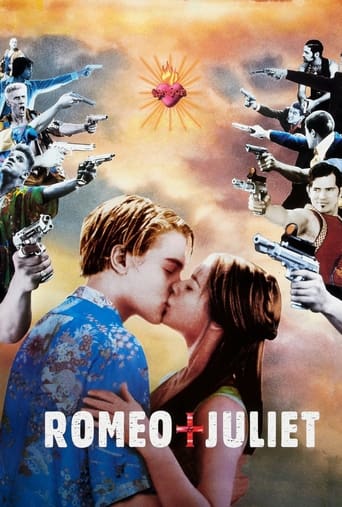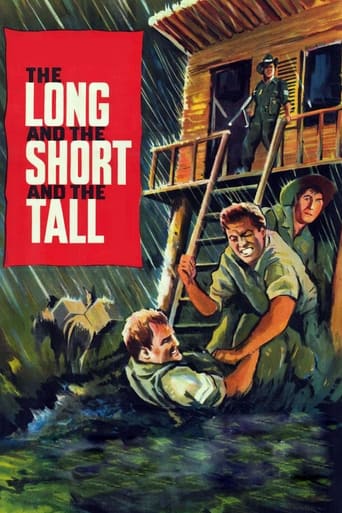
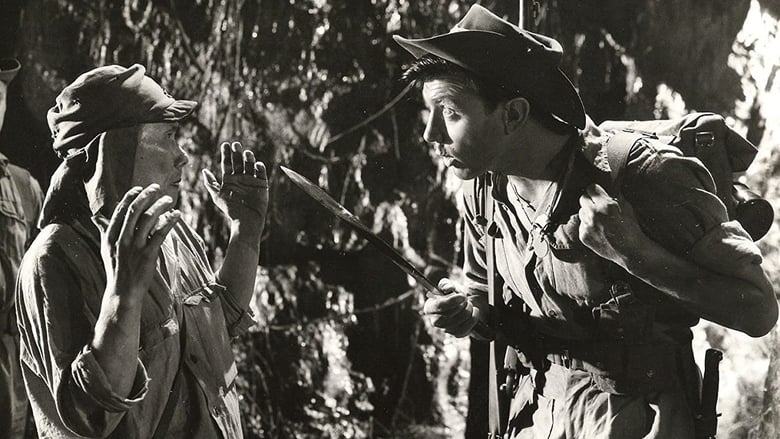
The Long and the Short and the Tall (1962)
Based on a play by Willis Hall. A troop of British soldiers are out in the jungle to record jungle noises and troop noises in the jungle so that the recordings can be played back by other troops to divert the enemy to their whereabouts. As they progress to what they think is closer to the base camp they find themselves farther and farther from radio range until the only channel they can get clearly is that of a Japanese broadcast. They now realize they are probably only 10 to 15 miles from a Japanese camp! The tension is added to by rowdy and openly admitted "non-hero" Private Bamforth who has nothing good to say about anyone and especially Corporal Johnstone (who holds an equal dislike for Bamforth). When a Japanese soldier is taken as their prisoner, the true colours of each man comes to the surface
Watch Trailer
Cast


Similar titles
Reviews
Absolutely brilliant
It is an exhilarating, distressing, funny and profound film, with one of the more memorable film scores in years,
This is one of the best movies I’ve seen in a very long time. You have to go and see this on the big screen.
A terrific literary drama and character piece that shows how the process of creating art can be seen differently by those doing it and those looking at it from the outside.
The title "The Long and the Short and the Tall" is taken from the lyrics of "Bless 'Em All", a rather nonsensical soldiers' song from the First World War which enjoyed fresh popularity during the Second. It would appear that the song is not well-known across the Atlantic, as it was released as "Jungle Fighters" in both the USA and Canada.The action takes place during the Burmese Campaign of 1942. Seven British soldiers on patrol in the jungle capture a Japanese prisoner whom they nickname "Tojo". Much of the action revolves around their arguments over what to do with him. Their commander, Sergeant Mitchem wants to take the prisoner back to headquarters for interrogation. Several others, especially Mitchem's second-in-command Corporal Johnstone, want to kill him, but one man, Private Bamforth, argues strongly that they should spare his life and that killing a prisoner would be a war crime.The film was based on a stage play by Willis Hall. In the play Bamforth had been played by Peter O'Toole, and the director Leslie Norman (father of the well-known critic Barry) wanted to cast O'Toole in the film as well. The producers, however, wanted to go for a "big name"- apparently O'Toole did not count as such in 1961- and insisted upon Laurence Harvey. This proved to be a mistake, and not only because Harvey quarrelled not only with Norman but also with his co-stars Richard Todd and Richard Harris. Harvey's performance is the main reason why I disliked the film.In the opening scenes Harvey is not too bad, if you can overlook his rather dodgy Cockney accent. Bamforth is, to put it mildly, a difficult customer. He is the sort of barrack-room lawyer who knows the King's Regulations inside-out except the parts which state that insubordination and disobedience to orders are offences against military discipline. He takes a great delight in baiting his superiors Mitchem and Johnstone, but he does not just have a problem with authority. He has a problem with the rest of the human race, and dislikes his fellow privates as much as he dislikes the NCOs. He makes no effort to conceal his prejudices against people from other parts of Britain- he himself is a Londoner- and his constant taunting of his colleagues Lance-Corporal Macleish (a Scot), Private Evans (a Welshman) and Private Whitaker (a Northerner) is mean-spirited stuff, not mere friendly banter.The trouble is, Harvey works so hard to establish his character in the audience's mind as a complete bastard that we do not believe him when Bamforth suddenly and unexpectedly emerges as the conscience of the detachment, especially as he originally tries to humiliate Tojo by addressing him in a patronising pidgin English. ("Flingers on Blonce!"- this being how Bamforth imagines the Japanese would pronounce "Fingers on Bonce!" He is evidently unaware that the Japanese have difficulty with pronouncing the letter "L", which does not exist in their language, and certainly would not try to insert it into English words where it does not belong). Now Hall, Norman and Harvey probably intended us to accept Bamforth's attempts to do the decent thing as quite sincerely meant, but I was left with the impression that this was only part of his ongoing campaign against authority and that if the rest of the detachment had wanted to spare Tojo, Bamforth would have voted to kill him.Of the other actors, the best is probably Harris as Johnstone, a man who finds it difficult to keep his violent emotions under control. Todd was something of a specialist in war films (as were some other British actors of the period, such as John Mills and Kenneth More), but he makes Mitchem a rather anonymous figure and this is not his best performance.Norman would have preferred to shoot the film on location, but during this period the British film industry rarely had the financial resources to travel abroad for filming, and the jungles of South-East Asia were definitely off-limits. ("Bridge on the River Kwai", although many of its stars were British, was actually an American film). The film, therefore, had to be made in a studio, and it shows. The budget for creating realistic scenery was obviously limited.Both play and film were controversial when they came out. They were particularly unpopular among British veterans who had fought in Burma, partly because of the implication that British soldiers might kill an unarmed prisoner, but also because the patrol are portrayed as an incompetent and undisciplined rabble. The play was at one time popular as a set text for English Literature O-Levels, although (as with many set texts) this may be a reflection not of its literary merits but of the fact that it is an easy work to write an essay about. I have never seen the play on stage, but then it is rarely performed these days. As for the film, it comes across as very dated today. Its main point of interest is that it represents a move away from the gung-ho, patriotic war films of the fifties towards the more questioning, sceptical world view of the sixties, but it does not represent a very interesting treatment of its theme. 4/10
"The Long and the Short and the Tall" is a 1961 war drama by director Leslie Norman. Dated and plodding, the film watches as a platoon of British soldiers apprehend a Japanese scout during WW2's Malayan Campaign. The platoon then wrestle over questions of ethics. Some soldiers abuse the prisoner, some want him executed, whilst others rush to his defence. Laurence Harvey, who plays a gruff private, becomes the platoon's voice of conscience."Long" was once renowned for its foul language and gritty tone, but such things are passé today. The film's "do unto others as you'd have them do unto you" plot ends with a handful of British soldiers captured by the Japanesese, a "shocking" twist which is meant to jolt us into contemplation. This, unfortunately, has little to do with contemporary warfare. Today the shoe is never on the other foot, and it's no longer an issue of populaces failing to "empathise with the enemy", but rather, something far more toxic; the ability of men to rationalise war as something just, necessary and humane, the apathy of populaces, the designed distortion of history and the ability of leaders to remain at a state of perpetual war yet hide such conflicts from prying eyes. The philosophical questions "Long" poses have little bearing upon either modern warfare or WW2 itself. The film costars Richard Harris.4/10 – Slow and unconvincing. See "The Burmese Harp".
A group of soldiers are in the jungle recording sounds and testing levels for sonic warfare to be tried out on the Japanese at a later date. However, when radio operator private Whitaker can only pick up Japanese signals on his radio, he surmises that they must be within 15 miles of a Japanese camp.Tensions between the soldiers are raised as they start to protect themselves and plan to withdraw back to base plans that change when they capture a lone Japanese soldier on patrol. As they debate what to do, the true characters of the men start to come out.I came to this thinking that this would be a low-key war movie and, in a way, I was right but it is less about war than it is about the true nature of its characters. In this way it is almost better described as social realism set in the Burmese jungle rather than anything else. The plot moves quite slowly and some modern audiences will likely struggle with the lack of fireworks in terms of acting and action for the majority of the running time but for my money I appreciated that the film took its time and developed broad characters only to then dismantle them when they are under pressure. In some regards the film isn't logical as it is more likely that the soldiers would have fled once the enemy closed in as opposed to fighting, but the play simply takes the struggle in all our souls and puts it into several different men, all making sense but not all making moral sense. It broods for a while but the point is there, building to a fine ending where the fireworks are supplied. The fact that the whole issue of treatment of POW's has come up yet again in Iraq (albeit more torture than necessity) ensures this film is still relevant but, even without the POW issue, the debate over morals and the question of 'what would you do' makes it interesting enough.The film feels a bit stagy due to the material and limitations of the time and budget but more due to the fact that this is a play. As a play, the material serves the actors well and they rise to meet it. Their performances are roundly strong even if they occasionally overplay it as if they were projecting to the back of a theatre where they really should have used the intimacy of cinema a bit better. Laurence Harvey is powerful in the plum role of Bamforth, the man who is anti-establishment etc but turns out to be the moral core of the group, Harris has a small role but is quality throughout. Todd has the most difficult role and manages it well even if he is given fewer acting 'high points' than some of the others. Support is good and everyone has their character, including good performances from McCallum, Ronald Fraser and the less well-known Meillon and Rees.Overall this is a dated, stagy film that may put off modern audiences unable to handle its slow pace and lack of action (for a war movie!) but this was an intelligent and interesting play and it has been put on the screen well. It is heavily cut of language and content due to the period it was made but this doesn't matter too much as it keeps the moral debate, with the men representing the various thoughts and impulses in all of us. It doesn't have a firm conclusion but to me that was part of its strength with issues of some moral complexity there are rarely definite answers or solutions.
A terrific cast and a talked about play does not make for a good big screen adaptation. The stagey sets; trying to make a Burmese jungle in a sound stage, detracts from the procedures and gets in the way of what little action there is.For me, the biggest problem is one of credibility and this goes back to the play itself. I just don't believe in characters who, under such pressure to escape, would just bicker at each other when the enemy is just around the corner. Maybe that was the point of the play, but it doesn't resonate with truth. Some characters don't want to shoot the Japanese prisoner because it will make too much noise and alert the enemy, but that doesn't stop them from yelling at the top of their voices! No one considers an idea to just tie up the prisoner and leave him behind as they make their escape and they just dawdle for the sake of more dialogue scenes about justice and seniority. The characters have some interesting ambiguities; Harvey is a barrackroom lawyer but has the most tactical nouse, Todd is a hard bitten professional solider but cannot control his section and Harris is the bully who surrenders at the end. But if this is a piece of wartime kitchen sink drama, designed to expose hypocricy in the British army, then it doesn't work. "The Hill" is a far, far better film that deals with these issues.


